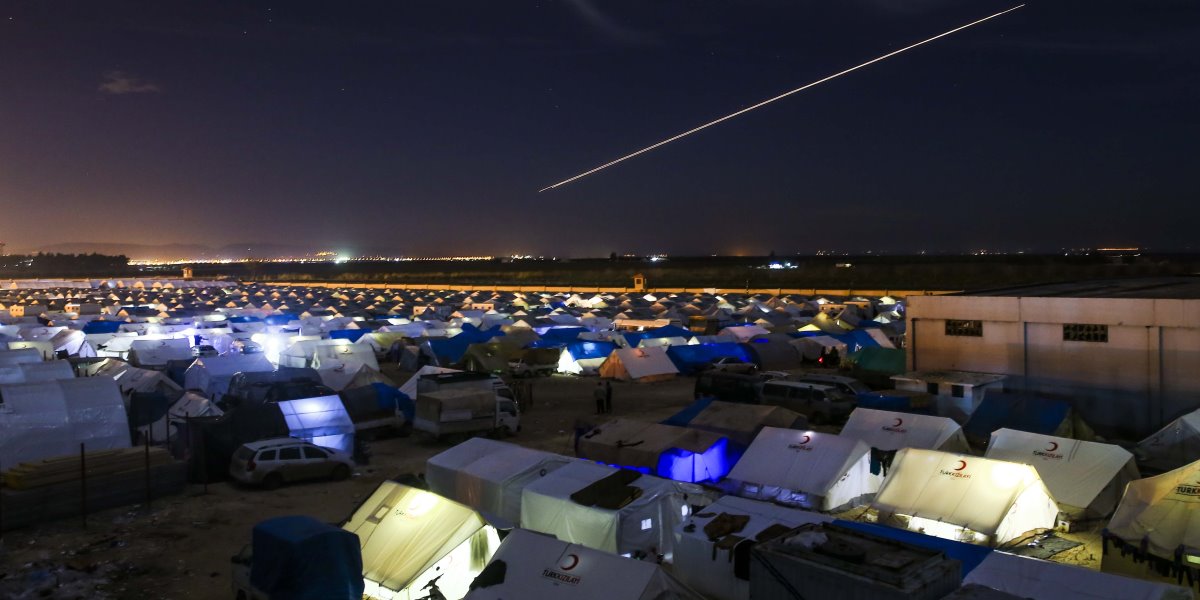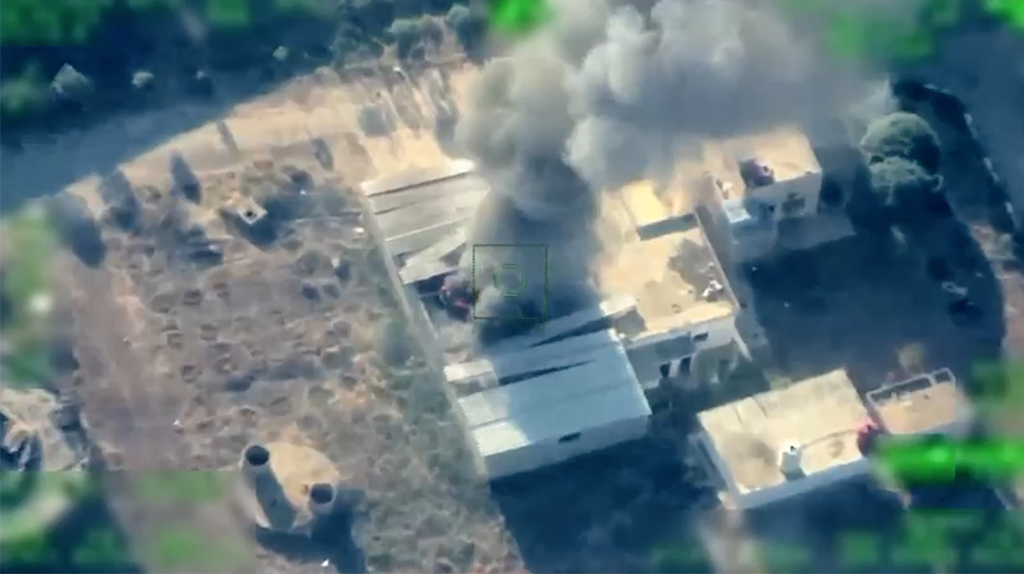
Turkey's Northern Syria Policy: Diplomacy and Hard Power
Turkey seems unwilling to tolerate the situation in Syria any longer precisely because the creation of a PYD-controlled area across the southern border could create a long-term national security threat.
Share
On Saturday, Turkey took a long-anticipated step to target the Democratic Union Party (PYD) and its military wing, the People's Protection Units (YPG), in northern Syria. Among the targets was the Mannagh Military Air Base, which the group had seized only recently. Speaking at a press conference hours later, Turkish Prime Minister Ahmet Davutoğlu warned that the shelling would continue until the militants agreed to vacate the outskirts of Azaz and the air base.
Clearly, what triggered Turkey's reaction was the PYD's attempt, in cooperation with Russia, to launch an eastward offensive in northern Syria. It would appear that the Turkish government had resolved to punish the group for trying to capture Azaz - as President Recep Tayyip Erdoğan indicated during his Latin America tour.
At this point, Turkey seems unwilling to tolerate the situation in Syria any longer precisely because the creation of a PYD-controlled area across the southern border could create a long-term national security threat. By shelling YPG positions in northern Syria, the country made it clear that hard power was on the table. It remains unclear, though, how far Turkey is willing to go: Moving forward, the special forces could launch attacks against specific targets. The government, too, could opt for an all-out ground offensive.
What we know for sure, however, is that Russia will seek to further escalate the situation. The Kremlin's immediate response to Turkey was to launch airstrikes against hospitals and the civilian population in Azaz. Although the United States could potentially determine which direction the conflict will take, U.S. President Barack Obama's administration opted to make recommendations to both parties and reiterated its tacit support for the PYD. Needless to say, neither Turkey nor the militants in northern Syria will pay much attention to the Obama administration's statements.
Having failed to create a safe zone in northern Syria, the Obama administration not only paved way for Russia's interference in the civil war but also encouraged the PYD to seize control of the region by turning to Russia for support if and when the U.S. was unwilling to help. In the end, a range of warring parties, including Russia, Syrian leader Bashar Assad's regime, Hezbollah, Iran-backed Shiite militias and DAESH, turned against U.S.-backed moderate rebels as Washington watched from the sidelines. To make matters worse, the Obama administration actively sided with the PYD when the group attacked the moderates.
Against the backdrop of a deepening crisis, Turkey further complicated the situation by targeting PYD positions in northern Syria. To be clear, it remains unclear whether the shelling will be enough to prevent the fall of Azaz or keep open the humanitarian corridor to Aleppo. We do not know if the Geneva peace talks could continue before the Kremlin-backed regime forces regain control of Aleppo. Either way, the shelling of YPG positions near Azaz made a potential confrontation with the PYD more likely - not only because the future of Syria depends on military operations as opposed to diplomacy but also due to the effect of Turkish involvement on PYD-controlled territories. Since the Syrian civil war began, the PYD/YPG have been cooperating with all parties except Turkey. Moving forward, they will continue to do their best to create an autonomous Kurdish region in Syria. Given the situation on the ground, the PYD leadership's call for dialogue hardly means anything - especially in light of Wednesday's terror attack in Ankara, which Turkey blames on a YPG-linked suicide bomber.At this point, it is unlikely for Turkey to strike a deal with the Syrian franchise of the PKK, a globally recognized terrorist organization which ended a two-year cease-fire in July to engage in urban warfare across the southeast. Although some people like to talk about a new world war and a return to the Cold War, Turkey's Syria policy must combine diplomatic efforts with hard power. Before assuming its place at the negotiating table, the Turkish government should secure its interests on the ground. Politicians and commentators calling on Turkey to strike a deal with the PYD are effectively telling the government to unconditionally accept the terms set forth by the PKK/PYD. In truth, Turkey's relationship with the PKK/PYD corridor in northern Syria calls for a long-term strategy. When the PYD forces end up having to face the Assad regime alone, the situation will be quite different.
[Daily Sabah, February 19, 2016]
Tags »
Related Articles








